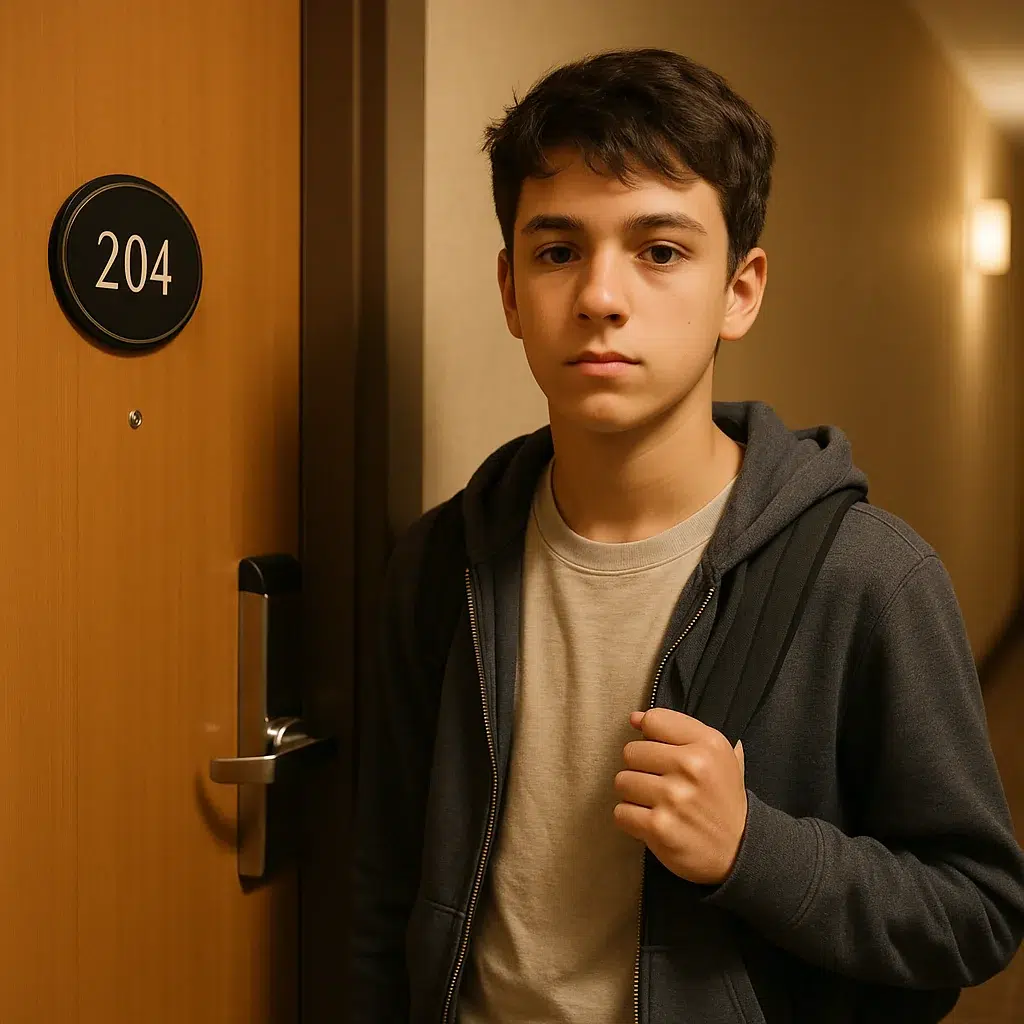Maryland officials have announced an immediate plan to stop housing foster youth in hotels, a controversial practice that drew sharp criticism even before the tragic death of 16-year-old foster teen Kanaiyah Ward at a Residence Inn in East Baltimore, the Baltimore Sun reported today.
As of Monday, six foster youth remained in hotel placements, according to Maryland Department of Human Services (DHS) Secretary Rafael J. López, who directed local agencies to find them alternative placements by November 24.
“One young person in a hotel is one too many,” López told The Baltimore Sun. “We wanted to end the practice once and for all.”
Directive Follows the Death of a 16-Year-Old Girl
Kanaiyah Ward’s death in October 2025 prompted public outrage and renewed scrutiny of Maryland’s foster care system. She was found dead inside a hotel on the Johns Hopkins medical campus, where she had been staying under the supervision of a contracted care provider. The state medical examiner ruled her death a suicide caused by diphenhydramine intoxication, an overdose of an antihistamine commonly sold as Benadryl. An empty bottle and a suicide note were found on the scene.
While it is unclear how long Kanaiyah had been housed at the Residence Inn, records show she was enrolled at the Augusta Fells Savage Institute of Visual Arts in West Baltimore since September 2024.
López’s directive states that “hotels, motels, office buildings and other unlicensed settings are not in a youth’s best interest and must be discontinued immediately,” emphasizing that such arrangements violate state and federal child welfare standards.
Concerns Over Lack of Placements and Resources
The DHS says it is expanding residential care options to accommodate foster youth who might otherwise end up in hotels or temporary offices. But advocates question whether the state has the resources to make the transition work.
Judith Schagrin, a former Baltimore County foster care administrator, criticized the directive as a “command without a solution.” She noted the lack of new funding or specific placement plans. “Where are they going?” she asked.
Leslie Seid Margolis, managing attorney for Disability Rights Maryland, echoed those concerns, warning that there still are not enough community-based resources for high-needs youth. She also pointed out that the directive doesn’t explicitly address children who remain in hospitals long after they are ready for discharge due to placement shortages, a problem currently the subject of an ongoing lawsuit against the state.
Foster Youth Still Housed in Offices and Hospitals
Child advocates continue to report that some foster youth are spending nights in social services offices or hospitals. Attorney Mitchell Y. Mirviss, who has sued the state for decades over foster system reforms, said that as of last week, five Baltimore children were in “hospital overstays” and one had spent the night at a social services office.
López acknowledged that offices are sometimes used as a temporary measure when children are removed from unsafe homes at night and a placement cannot be arranged immediately, but said this should only be for several hours—not overnight.
Directive Prioritizes Family and Licensed Care
Under the new directive, DHS must prioritize placements in the following order:
- Kinship care with relatives
- Licensed foster homes
- Contracted treatment foster homes
- Group homes or congregate care
- Independent living programs
- Trial home visits with a parent or guardian
López described child welfare as “a very complex environment” and said the agency continues to develop higher-quality care options. “If I had a wand, I would have used the magic wand from day one,” he said.
Legislative Push for ‘Kanaiyah’s Law’
Maryland Delegate Mike Griffiths, a Republican representing Harford and Cecil counties and a former foster youth himself, said he welcomes the directive but plans to introduce legislation to ensure the ban is permanent. His proposed bill, “Kanaiyah’s Law,” would codify the prohibition on housing foster children in hotels or other unlicensed settings and establish clearer licensing and background check standards for care providers.
“It brings back tough memories for me,” Griffiths said. “Watching this play out, these kids are still largely treated like second-class citizens.”
DHS Expands Residential Services for Complex Needs
To reduce reliance on hotels, DHS has contracted with additional residential providers to expand care options for youth with severe behavioral or medical needs. In June 2025, the agency issued a call for residential programs capable of supporting children with “complex medical and behavioral health needs” in structured, therapeutic environments.
Officials say existing group homes often lack the staffing and training required to manage such cases, resulting in extended hospital stays or hotel placements.
When the current administration took office in early 2023, 41 youth were living in hotels. As of this month, the number had fallen to six, with roughly 3,748 youth in Maryland’s foster care system statewide.
While the state’s goal is to eliminate hotel stays completely, recent reports show the issue remains challenging. A July court monitor report found that one Baltimore youth lived in a hotel for more than 16 months before being placed in a group home, only to later cycle through multiple placements and brief periods of homelessness.
Workgroup to Study Long-Term Solutions
The Maryland General Assembly recently established a workgroup to study alternatives to unlicensed foster placements. López said his directive is one part of a broader effort to strengthen child welfare services.
“Can we continue to improve? Without question,” he said.
For Survivors of Foster Care/Group Home Sexual Abuse
If you or someone you know has experienced neglect, unsafe conditions, or abuse in the foster care system, visit our Institutional Lawsuit Guide. You may also complete the secure, confidential form below for a free case review.
Related Story:
Maryland Audit Reveals State Failed to Shield Foster Children from Registered Sexual Offenders




